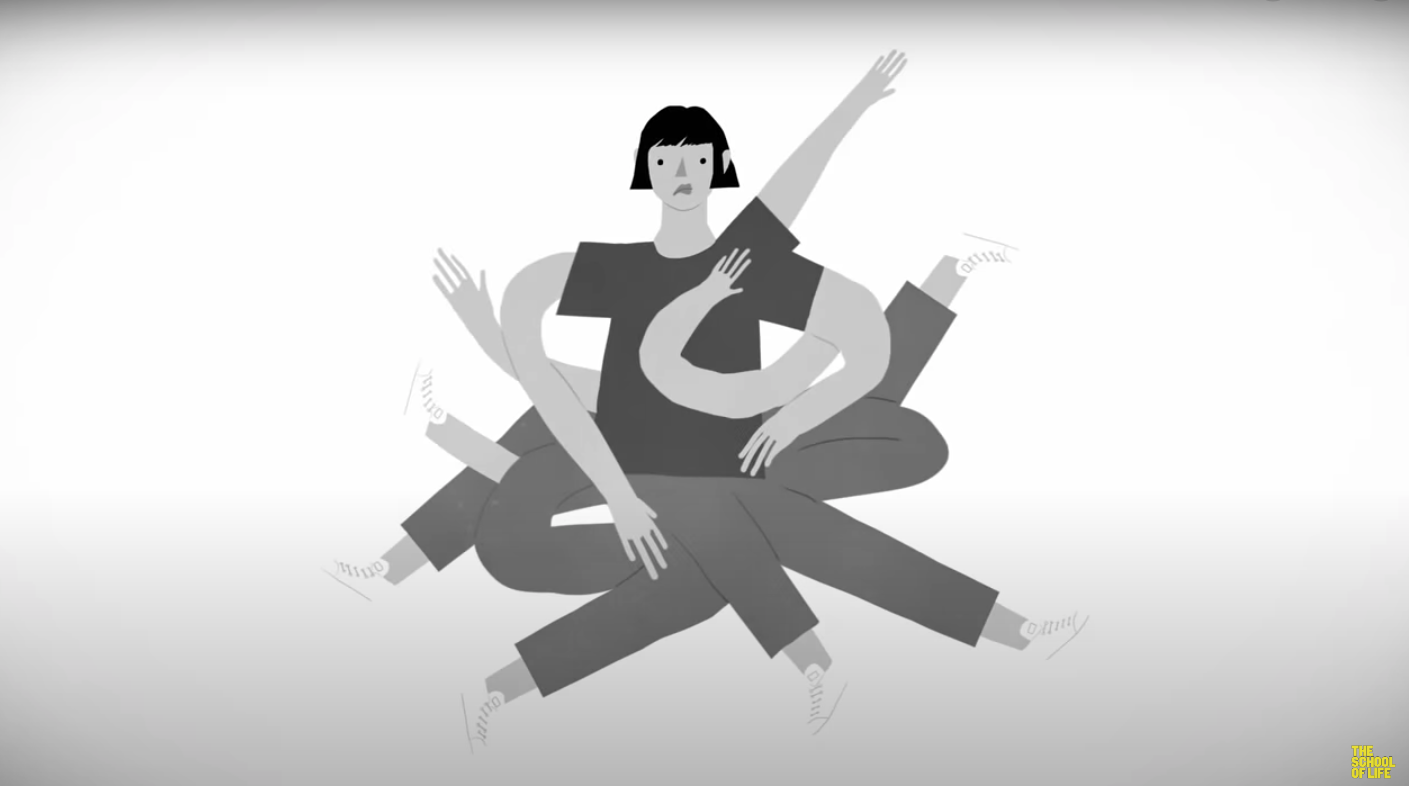Shame is an emotional and psychological affliction that often festers in the dark corners of our minds. Invisible yet insidious, it can wreak havoc on our mental well-being. It is not the same as guilt, which attaches itself to specific actions or events. Shame is a more pervasive feeling of inadequacy, a notion that we are fundamentally flawed. It’s not about what we’ve done, but about who we are. The School of Life’s compelling video, “The Problem of Shame,” meticulously unpacks this concept, offering not just a diagnosis but also a prescription for healing.
The first step to disentangle ourselves from the web of shame is to identify it. This might involve introspective exercises like rating how true various statements feel, such as “I don’t deserve to exist” or “I am unworthy of being known and loved.” High scores on this self-assessment can serve as a reality check, illuminating the debilitating extent of shame in our lives.
Shame is not something we were born with but rather something inflicted upon us. Often, these feelings can be traced back to early caregivers whose own perceptions we internalized as fact. Shame can touch every aspect of our existence, making it difficult to form relationships or even to love ourselves. It can lead us into a cycle of addictive or self-destructive behaviors, further intensifying the sense of shame.
Radical Imperfection: The Road to Recovery
The video suggests a rather unconventional way of liberating ourselves from shame. Instead of inflating our self-esteem by telling ourselves that we are good and beautiful, which often doesn’t work for those deeply rooted in shame, it suggests embracing the truth that every human being is radically imperfect. It’s not about comparing ourselves to an ideal but understanding that ideals are unrealistic measures that set us up for failure and disappointment.
Rather than counter shame with self-aggrandizement let’s consider cultivating self-compassion. This is something we can learn to do not just towards ourselves, but also towards others. After all, if we are all flawed, then we all deserve kindness and understanding. The true sin of those who have shamed us is not that they have spotted our imperfections but that they have forgotten their own. Thus, to overcome shame, we must let go of impossible standards for ourselves and others.
“The Problem of Shame” offers a profound and nuanced look into one of the least understood yet most debilitating emotional states a person can experience. It suggests that the journey out of shame involves not inflating our ego but rather accepting our collective imperfections. In a world that constantly measures us against unattainable ideals, this acceptance is not just liberating; it’s revolutionary. Let us all strive to replace judgment with mercy and shame with self-compassion. This could be our way out of the barren lands of shame into a more understanding and accepting existence. Watch the video below.


Recent Comments